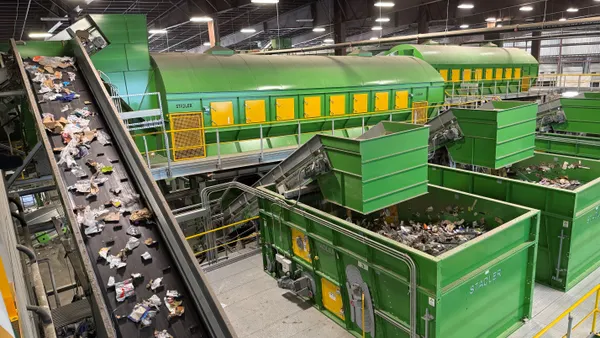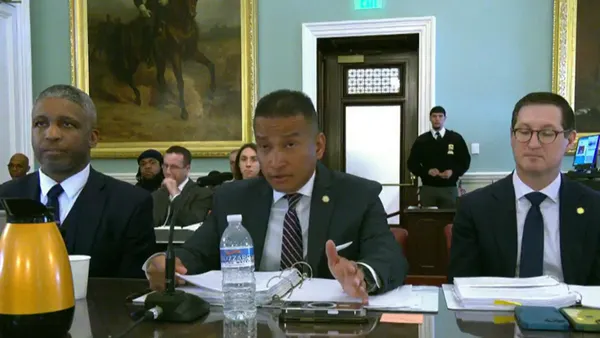Dive Brief:
- The Austin City Council voted unanimously against pursuing a three-year $7.7 million contract for city facilities and special events with Republic Services, as reported by the Austin Monitor.
- The main issue cited was Republic's plan to use the Austin Community Landfill — operated by Waste Management — which has been the subject of complaints and litigation. Waste Management was the only other bidder on the contract.
- According to city officials, Austin can continue to contract for disposal on an "interim basis" until a new proposal is developed. The city's Zero Waste Advisory Commission will provide a recommendation and the council is expected to move forward on a new contract within a few months.
Dive Insight:
Austin's Zero Waste Advisory Commission originally recommended against renewal back in November and the process has become increasingly convoluted since then. Environmental interests had advised against using the Austin Community Landfill because of capacity questions and local haulers had expressed concern that a renewal with Republic would encourage further consolidation of the market. An attorney for Republic countered those claims by saying the company received the best score from Austin's purchasing office and the landfill in question had 13 years of capacity remaining.
Facing pushback from regional or local haulers is nothing new for large companies such as Republic, as they have recently been experiencing in Nevada. The trend toward consolidation often makes it harder for smaller companies to compete with the disposal networks and operational efficiencies that size can provide.
As shown by the earlier recommendation from Austin's Zero Waste Advisory Commission, the city is attempting to be more deliberate in its disposal choices moving forward. Austin's diversion rate — while relatively high — is still below projected benchmarks and far behind the goal of "zero waste" by 2040. As the city continues to grow, officials are looking for more creative ways to engage residents around recycling and offering new programs to improve diversion rates. Though until the city sees an increase in these numbers it will still need disposal capacity and with waste-to-energy not seen as a desired option that will involve landfills for the foreseeable future.














